We're an affiliate
We hope you love the products we recommend! Just so you know, we may collect a share of sales or other compensation from the links on this page. Thank you if you use our links, we really appreciate it!
We all know that moment when we go to do dishes and notice there’s water standing in the dishwasher. Water standing in your dishwasher is not only frustrating, but it’s also dangerous. Instead of stressfully trying to figure out how to get it fixed, follow these simple steps and you’ll be good as new. This guide will show you how to fix standing water in your dishwasher back up and running.
Top Reasons for Standing Water in Dishwasher
If your dishwasher is filling up with water, there are several possible reasons why this might be happening. Here are 10 of the most common reasons:
- A dishwasher that doesn’t drain properly due to food particles can cause standing water. Learn How to Fix Dishwasher Draining to get rid of the drainage problems in your dishwasher.
- If your dishwasher is not draining, it can cause water to accumulate and stand in the bottom of the machine. One common cause of a dishwasher not draining is a clogged drain pump. If the dishwasher’s drain pump becomes clogged, it can’t move water out of the dishwasher tub, and the dishwasher will fill with water.
- A dishwasher that’s not level can allow water to accumulate in the bottom of the dishwasher. Place the dishwasher in its designated cabinet, in the correct position.
- A dishwasher drain hose can cause standing water if it’s not properly installed. If the hose is kinked, it can prevent the water from draining properly and result in a pool of water forming inside the dishwasher.
- A dishwasher that’s overloaded with dishes can cause water to accumulate on the bottom of the dishwasher. Load the dishwasher properly, read my detailed guide on how to load a dishwasher properly to learn how you should place dishes and other stuff in your dishwasher.
- If the dishwasher’s air gap is clogged, it can prevent the dishwasher from draining. Learn How to Clean Dishwasher AirGap by reading my guide to avoid this problem.
- If the dishwasher’s water level float switch is defective, it can cause the dishwasher to have standing water in it.
- If your garbage disposal is clogged, it can cause water to back up and flow into your dishwasher. This can cause the dishwasher to fill up with water and not run properly.
- If your dishwasher has been acting strangely and you’ve noticed standing water in it, the filter might be to blame. A clogged dishwasher filter can prevent water from draining correctly, leading to pools of water forming inside the machine.
- A clogged drain line can cause a dishwasher to overflow with water, leading to standing water in the dishwasher. If the dishwasher is not cleaned regularly, food particles and grease can build up and cause the drain line to become clogged.
Why is it Important to Remove Standing Water?
If you don’t regularly remove standing water from your dishwasher, it can cause a lot of damage. Not only will the standing water cause your dishwasher to work less efficiently, but it can also lead to the growth of mold and bacteria.
Mold and bacteria can cause a lot of health problems, so it’s important to take the time to remove the standing water from your dishwasher. You can do this by running a cycle with nothing in the dishwasher, or by using a wet/dry vacuum to suck the water out.
In addition to causing health problems, mold and bacteria can also cause damage to your dishwasher. Over time, they can corrode the metal parts of your dishwasher and reduce its lifespan. So if you want your dishwasher to last as long as possible, it’s important to remove the standing water on a regular basis. To read more about how to prevent and remove mold from dishwashers, read my guide on it.
By taking the time to remove standing water from your dishwasher, you can keep it in good condition and avoid any health problems or damage.
6 Quick Easy Ways to Remove Dishwasher Standing Water
1- Unclog the Dishwasher Drain Hose
If your dishwasher is constantly leaving a puddle of water on the floor, it may be due to a clogged drain hose. Here are some tips for unclogging the drain hose and removing the standing water:
- Check to make sure that there isn’t any food or debris caught in the drain hose. Use a vacuum cleaner to clear out any blockages.
- Pour a pot of boiling water down the drain hose to loosen any clogs.
- Use a plunger to try and dislodge the clog in the dishwasher drain hose.
- If all else fails, you may need to remove the drain hose and clean it out manually. Be sure to check for any other possible blockages before reattaching the drain hose.
Read my guide on HOW TO FIX DISHWASHER NOT DRAINING to find out more reasons why your dishwasher drains aren’t working properly.
2- Run Garbage Disposal
To check if your garbage disposal is the problem, run it for a few seconds to see if the water starts draining. If it doesn’t, then you likely have a clogged garbage disposal. To fix this, you’ll need to unclog the garbage disposal.
One thing that you can do is to pour hot water and baking soda down the garbage disposal. This will help to break up any clogs that may be in there. Another thing that you can do is to use a plunger. If none of these things work, you may need to call a plumber to help you unclog it.
3- Clean the Drain Pump
To clean the drain pump, you’ll need to remove the cover panel to see the drain pump. There’s usually a small filter on the end of the pump. You can clean this filter by gently brushing it with a toothbrush or using a small piece of wire.
Be sure to remove any debris that’s caught in the filter. You may also need to clean the drain hose. To clean it, remove the hose from the sink drain and use a small brush to clean out any debris that’s caught in the hose.
4- Replace or Repair Dishwasher Filter
Check the dishwasher filters for clogs. There are usually two filters in dishwashers: one at the bottom of the dishwasher and one in the spray arm area. The filter at the bottom can easily be cleared by removing it and cleaning it off; however, the filter in the spray arm area may require the disassembly of dishwasher parts to access. Clean both filters regularly to keep dishwasher water flowing properly.
If your dishwasher has a filter screen, it’s important to clean this regularly as well. To clean the filter screen, remove it from the dishwasher and scrub it with a brush. I have discussed many detailed ways in my guide on how to clean a dishwasher filter, read it to find out.
5- Clean Dishwasher Air Gap
If the air gap is clogged, water will back up into the dishwasher. To clean the air gap, remove the cap and use a paperclip or other small object to clear any debris from the holes. Rinse the air gap with vinegar and then hot water to remove any remaining residue. Replace the cap on the air gap and then run the dishwasher through a cycle to test it.
If you still can’t figure out how you should clean the dishwasher air gap, read my guide and make it easier for yourself!
6- Unclog Drain Line
If the drain line is clogged, the standing water can be removed by cleaning the drain line. The first step is to remove the drain basket and clean it with a brush. If the drain basket is full of dirty water, it can be emptied by unscrewing the cap at the bottom of the basket. After that, the drain line can be cleaned with a plunger. If the drain line is still clogged, it can be cleared with a plumber’s snake.
How To Maintain Your Dishwasher To Prevent Standing Water
Dishwashers are a lifesaver when it comes to cleaning dishes. However, if they are not properly maintained, they can become a breeding ground for bacteria and lead to water damage in your home. Here is how you can keep your dishwasher running smoothly and prevent any nasty surprises:
- Check the filters regularly and clean them if necessary. Check out my guide on How to Clean Dishwasher Filter Correctly to learn the process of cleaning it.
- Remove any food debris or particles from the dishwasher after each use.
- Run a warm water wash cycle once a week to clean the interior of the machine.
- Inspect the hoses and connections for leaks or damage.
Tips to Maximize Dishwasher Life
By following these simple tips, you can extend the life of your dishwasher – and enjoy clean dishes for years to come!
- Maximizing your dishwasher’s lifespan is easy – just descale it on a regular basis! Most dishwashers come with a descaling cycle, which you should run every few months. You can also use vinegar or citric acid to descale your dishwasher (check the manufacturer’s website for specific instructions). Learn HOW TO DESCALE A DISHWASHER in detail by reading my guide on it.
- In addition, be sure to use the right wash cycle for your dishes. Heavier items like pots and pans should go on the heavy-duty cycle, while delicate items should go on the light-duty cycle. And always wait until the dishwasher is full before running a load – this will save you both water and energy! To know the proper order of loading a dishwasher, give my guide on HOW TO LOAD DISHWASHER PROPERLY a read.
- If you have hard water, that can shorten the life of your dishwasher. Be sure to use a water softener, and to regularly descale your dishwasher (as mentioned above). And use the right dishwasher detergent, find the appropriate detergent for your dishwasher by reading my list of THE TOP 10 BEST DISHWASHER DETERGENTS IN 2022.
- You should also avoid putting any kind of plastic or aluminum in the dishwasher, as this can cause damage to the machine. Learn more about the 20 THINGS THAT CAN DESTROY A DISHWASHER and that should never be placed inside a dishwasher in my guide.
Final Words
So there you have it! Your comprehensive guide on how to fix standing water in a dishwasher. While this process may seem daunting, it’s actually quite easy and can be completed in just a few simple steps. And if all else fails and you can’t get the standing water to disappear, don’t worry – I’m here to help!
Most Frequently Asked Questions
Why is there water in the dishwasher when I run it?
One of the most common reasons for water in the dishwasher is a blockage in the drain hose. The drain hose carries water from the dishwasher to the drain, so if there’s a blockage, water can back up and fill the dishwasher.
How do I fix the water in my dishwasher?
If you’re seeing water in your dishwasher, there’s a good chance that the blockage is near the dishwasher itself. You can try to clear it yourself by dislodging any food or debris that might be blocking the hose. You can also try using a plunger to clear the blockage.
Why did my dishwasher start leaking water?
There are a few different things that could cause your dishwasher to start leaking water. One common reason is if the dishwasher isn’t draining properly and the water backs up into the machine. Another possibility is that there’s a leak in one of the hoses or in the machine itself.
What should I do if my dishwasher starts leaking water?
The first thing you should do is check for any obvious leaks. If you can’t find anything, the next step is to determine where the water is coming from. If it’s leaking from the bottom of the machine, you may be able to fix it yourself by clearing any blockages in the dishwasher’s drainage system.
Why is there standing water in my dishwasher?
Standing water in your dishwasher can be caused by a few different things. One possibility is that the dishwasher isn’t draining properly and the water is backing up into the machine. Another possibility is that there’s a leak in one of the hoses or in the machine itself. If you’ve checked your dishwasher for leaks and can’t find anything, it might be worth calling a professional to take a look.
How do I clear the blockage myself if my dishwasher is leaking water?
If your dishwasher is leaking water due to a blockage, you may be able to clear it yourself. First, check the dishwasher’s owner’s manual for instructions on how to do this. Once you’ve cleared it, test the dishwasher by running a cycle to see if the water is still leaking. If it is, you’ll need to call a professional for help.
What should I do if my dishwasher starts making weird noises?
The first thing you should do is check for any obvious problems, such as a dishwasher that’s not draining properly or a dishwasher with a leak. If you can’t find anything, the next step is to determine what kind of noise it is. If it’s a loud banging noise, it could be due to something caught in the dishwasher’s pump. If it’s a grinding noise, it could be due to a blockage in the dishwasher’s grinding chamber.
What causes a dishwasher not to drain the water out?
This is probably the most common reason for a dishwasher not draining properly. Make sure you check inside and outside of the dishwasher for any clogs. Check the drain hose for any blockages or debris. Check the valve for any blockages or debris. Check the pump for any blockages or debris.
How do I get rid of standing water in my dishwasher?
First, make sure the dishwasher is completely empty. If there are any dishes or food in there, that could be causing the water to build up. Next, check the drain for any blockages. If there’s anything blocking the drain, that could be preventing the water from draining properly.
Why is there standing water in my brand-new dishwasher?
There can be a few reasons why your brand-new dishwasher has standing water in it. It could be that the dishwasher needs to be calibrated, or there might be something blocking the drainage area. If you’ve ruled out those possibilities and the water is still present, it’s likely that the dishwasher wasn’t installed properly.
Can I run a dishwasher with standing water?
A: The answer is yes, but there are a few things to keep in mind. First, the standing water will likely cause your dishwasher to take longer to run than usual. Second, the standing water may not allow the dishwasher to reach its full cleaning potential. Finally, if the standing water is dirty or contains food particles, it could end up making your dishes dirtier.
How much water should be in the bottom of my dishwasher?
First, check your dishwasher’s manual. Some manufacturers have specific instructions on how much water should be in the bottom of their dishwashers. In most cases, you’ll want there to be about an inch of water in the bottom of your dishwasher.


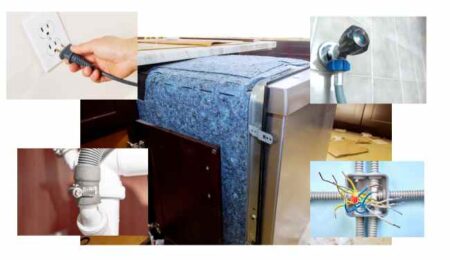






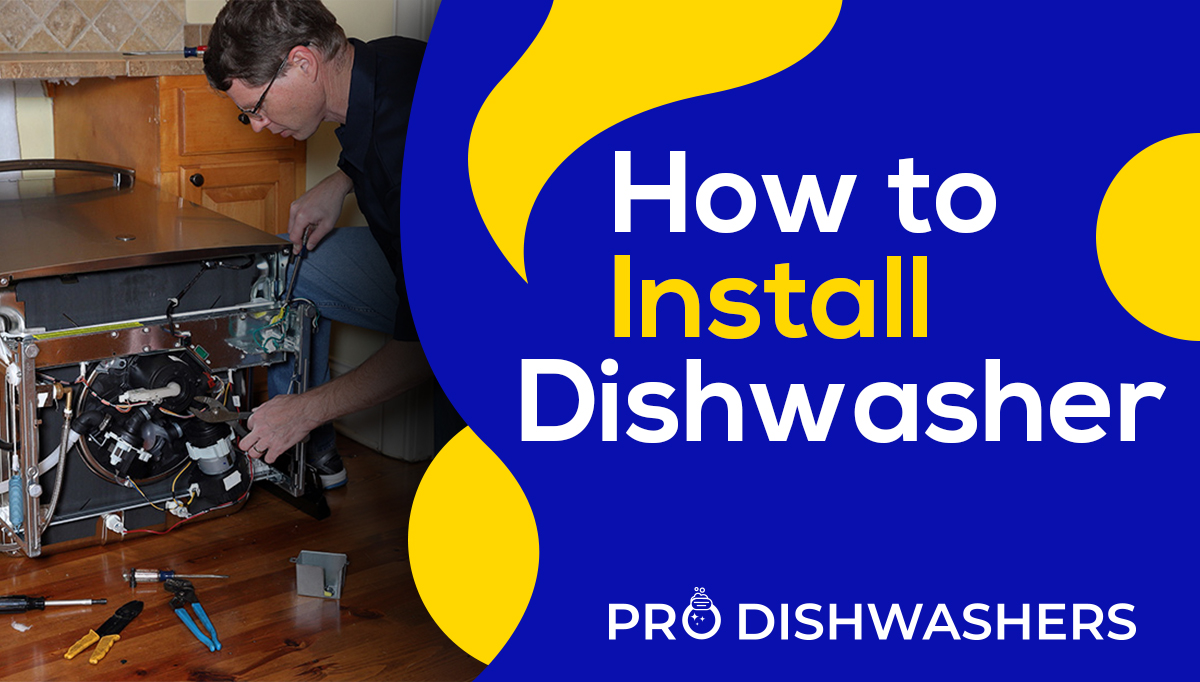
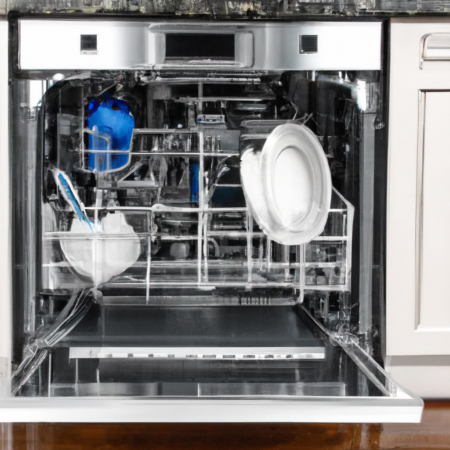



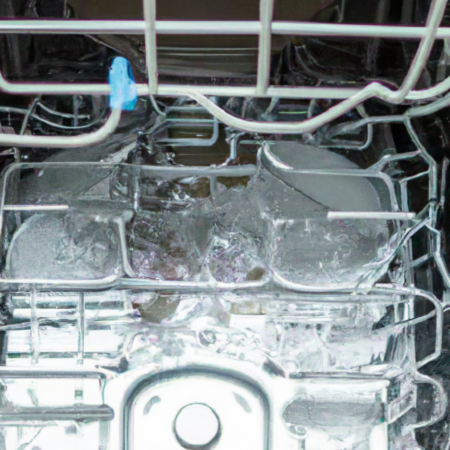
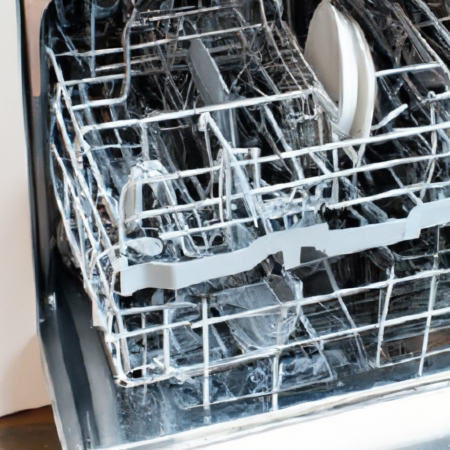
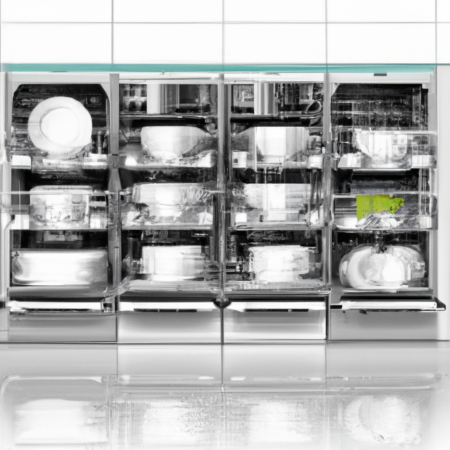
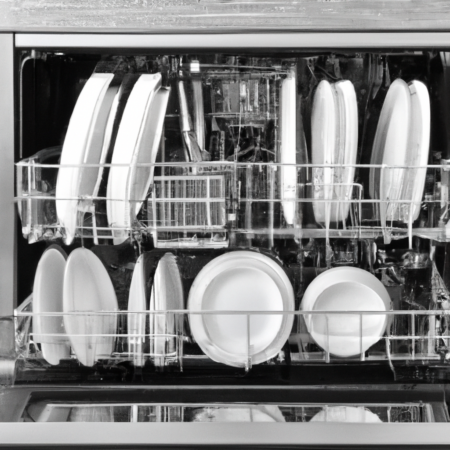
Leave a Reply